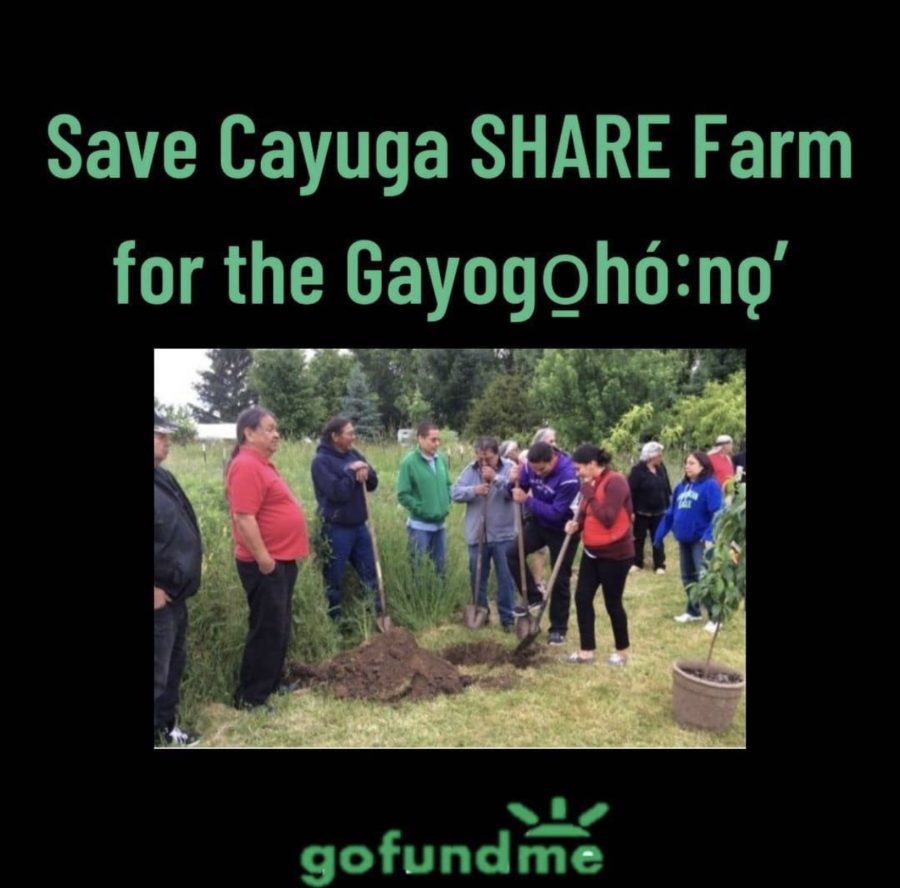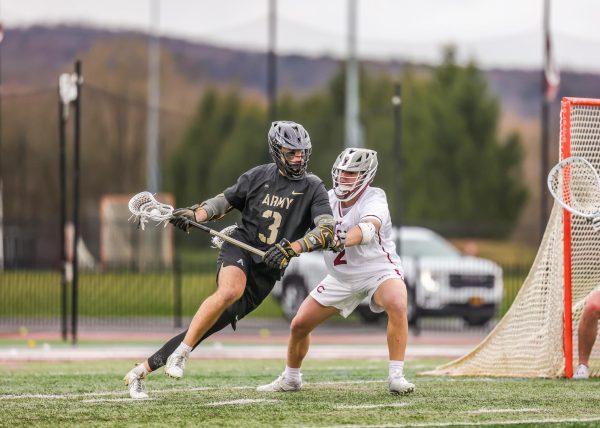GoFundMe Provides Solution for Cayuga SHARE Farm to Protect Indigenous Land
Cayuga Nation members are pushing back on New York State efforts to foreclose on their homeland, the Cayuga SHARE Farm, over an ongoing property tax dispute. Saving the Cayuga SHARE Farm would provide this Indigenous community with the opportunity to rematriate seeds and give food to the Ǫgwehǫ:weh (native people) in their native soil.
Also known as the Gayogo̱hó꞉nǫʼ or “People of the Pipe,” the Cayuga is a sovereign nation of the Haudenosaunee confederacy. The Cayuga SHARE Farm works to support the education, cultural survival and community development of the traditional Gayogo̱hó꞉nǫʼ.
The Cayuga learned of the problem last August when a friend of the traditional Cayugas discovered the county’s tax sale deed. The notices were sent to the address listed on the deed, which has not been occupied since 2005, thus such notices were missed. This clerical error led to an accumulation of upwards of $100,000 of unpaid taxes.
An internal leadership dispute in 2005 caused the Cayuga to split into two factions: the legally recognized federal and the traditional. A representative of the Traditional Cayuga Nation Chiefs and Clan Mothers Joe Heath explained that the separation of these two factions has been the reason behind the state’s tax claims over them. As an unrecognized Indigenous population, they are required to pay property tax on the Cayuga SHARE Farm.
“The county is still of the belief that they have the right to collect property taxes on Indian land, even though the federal law prevents that,” Heath said. “Federal law says very clearly that property owned by Indian nations within reservations is not subject to state property taxes”
Community organizer for the traditional Cayuga faction Hilary Anne Coppola created a GoFundMe as a way to help address the ongoing dispute, according to Joe Heath. The GoFundMe page explains how keeping this land is important for the Gayogo̱hó꞉nǫ in their fight for their legal rights, both on the state and federal level. The land provides them with the ability to secure their cultural freedom as a sovereign nation.
Retired Colgate Professor for Native American Studies Carol Ann Lorenz first heard of the dispute through a host of communication chains and networks within the Native American ether of Central New York.
“This is an organization that does fabulous work but just doesn’t have the resources to draw from — especially in that amount,” Lorenz said in the context of the GoFundMe goal of $130,000. To garner more support for the initiative, Lorenz decided to contact Colgate Senior Honor Society co-president Harleen Kaur.
“[Lorenz] thought that since the Senior Honor Society is very geared toward connecting with the Indigenous populations, just because of our history, she thought it would be a good idea [to reach out],” Kaur said.
Kaur took to spreading the word on the foreclosure and subsequent fundraiser for Cayuga SHARE Farm via social media. Also a member of the Colgate Student Coalition, she decided that the CSC’s Instagram would be an effective way to spread awareness.
“I wanted to increase the visibility of the campaign, so we thought the Instagram post would be really great, especially since we got so much support on previous campaigns,” Kaur said.
Created on Feb. 6, the GoFundMe surpassed its goal in just under three weeks. Heath said that much was done to spread the word through a network of organizations and individuals, including that of the Colgate community.
Sophomore Dalia Skolnik discussed how, like the Senior Honor Society, the Colgate Student Coalition tries to promote events they are passionate about.
“I think this is a really great cause,” Skolnik said in context with the fundraiser. “I think it’s really interesting in general what they do and how it’s protecting their ancestral land and trying to gain back the land that was taken from them. It’s such an important cause in general. [Making the Instagram post] was so easy for us to do and could have made such a large impact.”
But Skolnik admitted to feelings of disappointment at the lack of engagement from the Colgate student body as compared with other posts, citing a 90% decrease in likes from the CSC’s previous fundraising efforts.
Despite this, the Cayuga Nation’s GoFundMe page managed to surpass its goal. As of Mar. 16, $145,050 had been raised.
While he was grateful for the incredible success of the GoFundMe, Heath also expressed his frustration over the lack of legal protection for the Indigenous populations, particularly with regards to the discrepancies between Federal law and New York State law.
“Everything in this area is complicated — culturally and historically,” Heath said. “Everything in the U.S. is stolen Indian land, and we need to ask what we are going to do about that. This is part of the history of systemic racism that this country was founded on — slavery and flipping Indian land. And so sooner or later we have to find a just resolution of all of that, some healing of all of that. We need to bring people together so that we don’t have constant disputes like these. There needs to be a lot of historic and cultural sharing as we move forward from this last summer’s awakening of racism, and this tax dispute is just one chapter in that larger story.”







